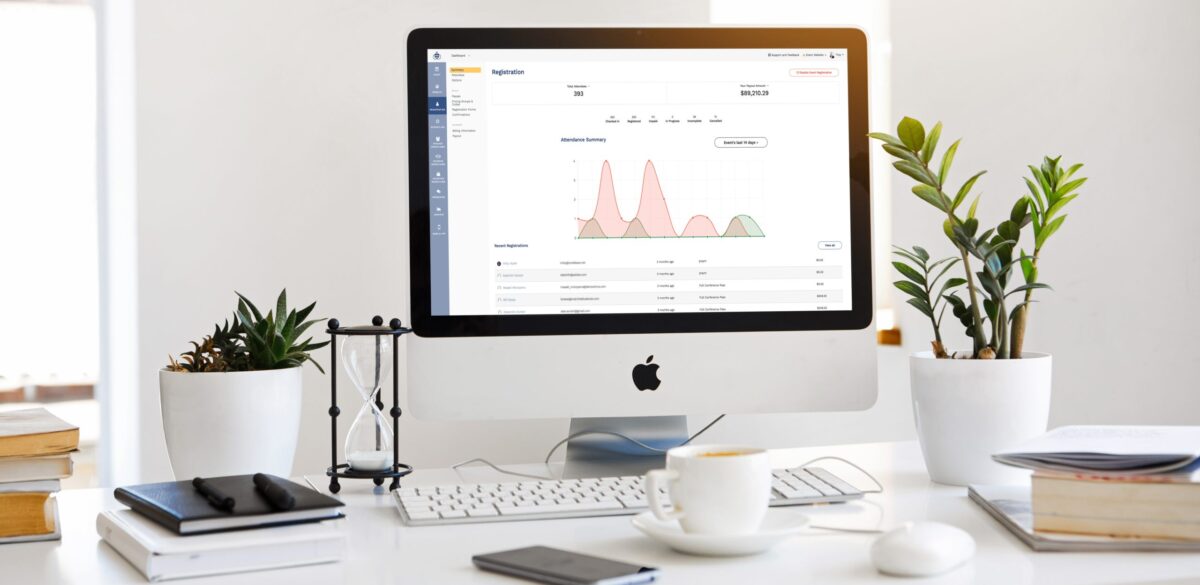Metadata is used widely by businesses today, but how can professionals in charge of multiple events leverage this tool? We start by understanding what metadata is, and then list some of the ways you can use metadata to optimise your event management processes.
What is metadata and why should you use it?
Metadata is data that describes other data. Because it summarises basic information about data, metadata can be helpful for finding data, using data, preserving and storing data, and re-using data. Basic examples of metadata include author, date created, date modified, and file size.
With this type of metadata, you can locate and use specific data sets quickly. In your event management platform, an example of metadata could be the member attendance field. You can create metadata manually or through automated processes, though manual ways tend to be more accurate.
5 ways to use metadata for event management
Metadata can be used in a wide range of ways when you’re managing multiple events. It can help you discover, categorise, and re-use data.
1. Tracking your event experience
For people and companies managing multiple events, tracking individual events typically isn’t a challenge. Instead, the challenging aspect might be tracking the totality of your events, which might be dozens or hundreds of events at any time. An event management platform with the right metadata tools can allow you to track multiple events more easily.
For example, you could have fields like event date, event category and available places for each event logged in your platform. You can then conduct searches by data, category, and available places and see at a glance how many events of this type you’ll need to manage and market more effectively (to fill the event) in a certain period.
You can use this type of metadata to do other things like generating reports and tracking which events have been the most successful by doing a search based on survey metadata.
2. Accessing summaries of data sets
So you don’t want the detailed data of each event; you only want a summary of data sets. A metadata-based search lets you bring up a full list of events satisfying specific metadata criteria.
For example, you can look for events that are filled, events that need to be filled, ticket price, location, and any other metadata criteria.
Metadata can help you better understand relationships among events. For instance, you can bring up a list of related events and their topic summaries. These summaries can help you decide what you need to do to promote multiple events.
Additionally, this can help you share vital data sets across team members, like newly added events each day. Furthermore, metadata insights can support integration with leading tools by allowing the different platforms to understand what data they need to share.
3. Make your marketing more effective
Metadata can be a critical tool for supercharging your marketing campaigns for multiple events. First, metadata allows technology to “understand” your data. For example, search engines, CMSs, and social media rely on metadata to sort, retrieve, and deliver data. So you can ensure your websites and social media platforms are visible and draw on the traffic data (which is not metadata but made accessible by metadata) to track interest in your events.
Metadata insights also allow for smarter decisions about aggregating content and re-using content to optimise your marketing efforts across multiple events. You can use metadata to make marketing decisions about personalisation and localisation, for example. With metadata, you (and your marketing software) can easily sort through content to offer specific upcoming event recommendations (based on past attendance and things like interest areas) for your past attendees.
Finally, metadata is also a great way to boost content intelligence by helping you track how would-be attendees are interacting with your content. You can then use this information to provide better content if necessary, for example.
4. Assess data quality
Metadata can also help you develop a better strategy for managing data for your events and in turn manage different events. Since you’re dealing with high volumes of events, ensuring you have detailed, accurate, and comprehensive data can be a challenge.
Generating reports from metadata-based searches, for example, can allow you to identify where there might be poor quality data, inaccurate data, or missing data because, for example, you might be able to see at a glance where events have missing metadata fields.
5. Archived data insights
With the right metadata insights, you can more effectively sort through archived event data for multiple events. By searching and sorting with metadata-based searches, you could get granular details about specific types of events during a given period.
For example, you can work out how well your conferences versus webinars did last year (by doing a metadata search based on attendance levels plus event type) and explore the possible reasons.
Take advantage of metadata with Attendease
Metadata can help you better track your events, access summaries to support multiple-event-management processes, and drive stronger marketing outcomes. It could also help with data quality and obtaining insights from archived data. Using a powerful event management platform could make leveraging metadata for valuable insights a simple process. See below some metadata you can track with Attendease.
.png)
-1.png)
Attendease is an all-in-one event management software and automation platform for corporate event teams. Our robust data analytics tools make it easier for you to draw on metadata for granular insights. Find out more about our event measurement capabilities today.

